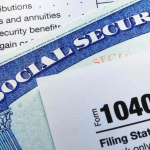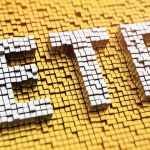Coinbase, one of the world’s largest cryptocurrency exchanges, has recently brought a significant risk to the forefront of the crypto market. This risk pertains to the centralized nature of cryptocurrency exchanges and the potential impact on investors. In this article, we explore the implications of this revelation and its significance for cryptocurrency investors.
Understanding Coinbase’s Role:
Coinbase has long been regarded as a gateway for newcomers to enter the world of cryptocurrencies. Its user-friendly interface and a variety of supported assets have made it an attractive platform. However, a recent statement from Coinbase has shed light on a less-discussed aspect of centralized exchanges – the need for decentralized alternatives.
Centralized vs. Decentralized Exchanges:
Centralized exchanges like Coinbase are operated by a single entity and are subject to government regulations and data privacy concerns. This makes them susceptible to potential security breaches, government interventions, and the risk of the exchange itself facing financial issues.
On the other hand, decentralized exchanges (DEXs) operate on blockchain technology and are not controlled by any single entity. They offer a different level of security and independence from government control, but they can be less user-friendly and may not offer the same range of services.
The Risk Revealed:
Coinbase’s risk warning has made investors aware of the potential issues related to centralized exchanges:
Custodial Control: Centralized exchanges like Coinbase have full control over users’ funds and private keys. This centralized control is contrary to the core principle of cryptocurrencies, which emphasize self-custody and financial independence.
Government Compliance: Centralized exchanges need to comply with government regulations. While this ensures legal operation, it can also lead to asset freezes, user data sharing, and other governmental interventions that affect users.
Vulnerability to Hacks: History has shown that centralized exchanges are attractive targets for hackers. When exchanges are breached, users’ funds are at risk, and the reputational damage can be significant.
Operational Risks: Like any other business, centralized exchanges face operational risks. If the exchange encounters financial trouble, users’ assets could be compromised.
The Significance for Cryptocurrency Investors:
Risk Assessment: Cryptocurrency investors should now be more discerning about the platforms they use. Understanding the trade-off between user-friendliness and security is essential.
Exploring Decentralized Alternatives: Investors may consider exploring decentralized exchanges as an alternative or supplement to centralized ones. DEXs offer greater control but often with a steeper learning curve.
Asset Diversification: Diversifying assets across multiple exchanges and wallets can spread the risk. Keep only what you need for active trading on centralized exchanges, and store long-term holdings in secure wallets.
Regulatory Awareness: Staying informed about regulatory developments in your region is crucial. Regulations can significantly impact the services and security provided by centralized exchanges.
Security Measures: Implement robust security measures for your cryptocurrency holdings, such as hardware wallets and two-factor authentication.
Coinbase’s acknowledgment of the risks associated with centralized exchanges is a reminder that the cryptocurrency landscape is still evolving. It’s a call for investors to be proactive in understanding the risks and making informed choices about how they manage their digital assets. Whether you choose centralized or decentralized exchanges, the key is to do so with a full awareness of the trade-offs involved and with a commitment to safeguarding your investments in this dynamic and rapidly changing market.



























